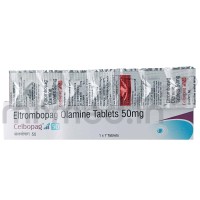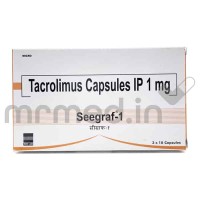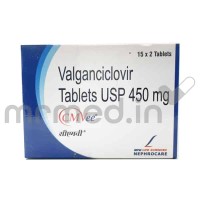Zyloric 100mg Tablet is an anti-hyperuricemic drug in the category of xanthine oxidase inhibitors, containing the active ingredient Allopurinol. It is used to treat gout (a form of inflammatory arthritis caused by sudden and severe attacks of pain, tenderness, redness, and swelling in the joints, most commonly affecting the base of the big toe). This tablet is also used to treat chemotherapy-induced hyperuricemia. Some cancer treatments can cause an increase in uric acid levels, which may lead to kidney damage or gout. This medicine may be used with chemotherapy to prevent hyperuricemia and its associated complications.
This drug is contraindicated in individuals with known hypersensitivity or allergy to it or its component. Stop taking this tablet and contact your doctor immediately if you develop a rash or skin symptoms. Inform your doctor of any heart, thyroid, kidney, or liver disease. Your physician may prescribe you a low dose and perform regular blood tests. It is generally recommended to avoid using Zyloric 100mg Tablet during pregnancy unless it is necessary. Taking this drug while breastfeeding is unsafe because it may affect the child. Do not breastfeed while taking this medicine.
- Gout
- Chemotherapy-induced hyperuricemia
Therapeutic Effects of Zyloric 100mg Tablet
Pregnancy
Zyloric 100mg Tablets should be taken if it is necessary during pregnancy. Report to your doctor if you are pregnant, suspecting, or planning for the pregnancy before starting the treatment.
Breast Feeding
Taking Zyloric 100mg Tablet while breastfeeding may be unsafe because it may affect the child. Do not breastfeed while taking this medicine.
Lungs
It is unknown whether Zyloric 100mg Tablet is safe for patients with lung problems. Inform your doctor if you have lung disease before starting the treatment. Contact your doctor if you experience any lung-related symptoms.
Liver
Inform your doctor if you have liver disease because the Zyloric 100mg Tablet should be used cautiously with a liver condition.
Alcohol
It is unknown whether consuming alcohol while taking a Zyloric 100mg Tablet is safe. Please speak with your physician.
Driving
Driving vehicles or operating machinery while taking Zyloric 100mg Tablet is unsafe because it may cause drowsiness and vision problems.
Common
- Skin Rash
- Nausea
- Vomiting
- Diarrhea
- Headache
- Drowsiness
Drink plenty of water. Smoking leads to oxidative stress in the body, leading to increased uric acid levels. It is advised to avoid smoking or using tobacco products while undergoing treatment with this drug.
Zyloric 100mg Tablet works by inhibiting the enzyme xanthine oxidase, which converts purines into uric acid. By reducing uric acid production, this drug helps lower uric acid levels in the blood count and prevents the formation of urate crystals, which cause gout and kidney stones.
Zyloric 100mg Tablet is taken orally in the form of tablets. The frequency and dosage of administration will depend on the individual's condition and the doctor's recommendation. It is taken once daily, with or after a meal, along with plenty of fluids.
Common side effects of Zyloric 100mg Tablet may include skin rash, nausea, vomiting, diarrhea, drowsiness, and headache. These side effects are temporary and mild. If you experience a severe skin rash, allergic reactions, or other side effects, seeking medical attention is important.
The full effect of Zyloric 100mg Tablet may take several weeks or even months to be noticeable. You must continue taking this tablet as your doctor prescribes, even if you do not experience immediate relief.
Zyloric 100mg Tablet is generally not recommended in children under 11 unless specifically prescribed by a pediatric specialist. Dosage adjustments may be required in pediatric patients.
Molecule Name: Allopurinol | Therapeutic class: Antihyperuricemic agents |
Pharmacological class: Xanthine oxidase inhibitors | Indications: 1. Gout 2.Chemotherapy-induced hyperuricemia |


-700x700-product_thumb.jpg)
-700x700-product_popup.jpg)
-80x80-product_popup.jpg)
-80x80-product_thumb.jpg)

-200x200.jpg)





-200x200.jpg)
-200x200.jpg)
